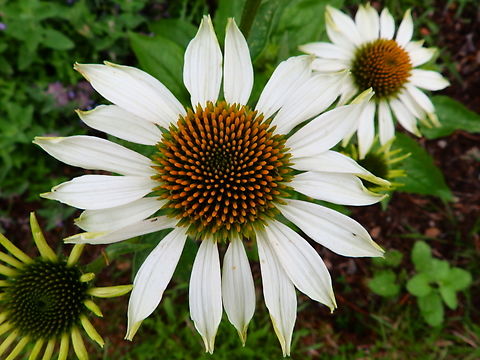
Appearance
"Echinacea pallida" is similar to "E. angustifolia", but plants often grow taller, ranging from 1.5 to 2.5 ft tall, with some growing 3 ft or more tall. Plants normally grow with one unbranched stem in the wild, but often produce multi-stemmed clumps in gardens. They have deep taproots that are spindle shaped, wider in the center and narrowing at the ends. Stems are green or mottled with purple and green. The leaves are elongated lanceolate or linear-lanceolate with three veins. Flower head rays are narrow, linear, elongated, and drooping, ranging from 1 to 3 inches long. The flower heads are from 3⁄4 to 3 inches wide with pale rose-purple or nearly white ray florets. The flowers have white pollen. "Echinacea pallida" blooms from May into July. The fruits are cypselae and are tan or bi-colored with angled edges.Distribution
It is found in the Mississippi Valley, the southeastern Great Plains, and the region south of Lake Michigan. Most of the known populations are in the region from southern Wisconsin and Iowa south to Louisiana and eastern Texas, with additional reports in the Southeastern United States, New England, New York, Michigan, and Ontario.Habitat
The states of Tennessee and Wisconsin list the species as threatened, mostly due to habitat loss and over-collection of roots, which are made into herbal medicine. The use of "Echinacea" as a medicinal plant has not been demonstrated to have any positive health effects....hieroglyph snipped... It is a larval host to the silvery checkerspot.References:
Some text fragments are auto parsed from Wikipedia.